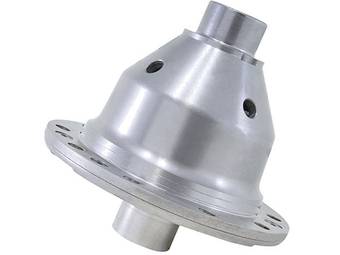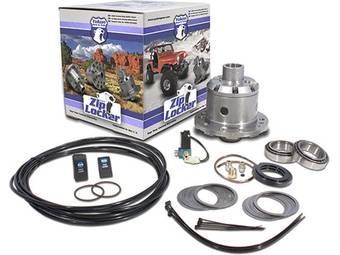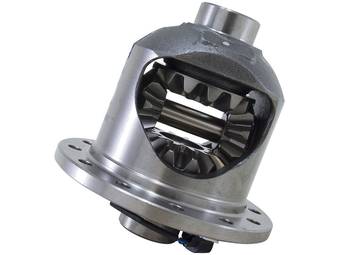Free Shipping on Orders Over $100
Locking Differentials
What Do Locking Differentials Do?
Locking differentials are a popular upgrade in the off-road community. These differentials consist of numerous gears, clutches, and often pneumatic and electronic assistance to engage and disengage the differential. When engaged, locking differentials tie both axle shafts of a single axle together, applying even power to both wheels to maintain traction.
There are several differential types aside from locking, with the most common being:
Open: These differentials feature multiple gears that allow the axles to move at independent speeds from one another, allowing you to navigate tight corners and parking lots without excessive hopping and skipping.
Limited Slip: These differentials are popular in the drive axles of high-performance or heavy-duty vehicles. They utilize a series of gears and clutches to send power to both wheels when necessary; however, they also allow both wheels to turn independently at low speeds, allowing solid on and off-road drivability.
When to Use Locking Differentials
Locking differentials should be engaged during times of limited traction, like wheeling in loose dirt, gravel, snow, or when racing from a dig.
Off-road, lockers help to maintain traction during times of extreme articulation or uneven traction; unlike open differentials, which send power to whichever wheel has less traction (like a wheel that isn’t even touching the ground), locking differentials send power to both wheels simultaneously, allowing your vehicle to climb over otherwise tricky obstacles.
Locking Differential Types
There are three popular locking differential types on the market, including:
Automatic Locking Differentials: These differentials automatically lock the axles together when adequate torque is applied; however, during low-speed turns and sharp maneuvers, the axles unlock.
Selectable Locking Differentials: The differentials are extremely popular in the off-road community, allowing you to manually lock or unlock your differential using either pneumatic pressure (air lockers) or an electric motor (E-Lockers). In both cases, you can easily lock and unlock your differential with a flick of a dash-mounted switch!
Spool: Spools are less popular for vehicles that see street time, as they completely replace your vehicle’s carrier assembly to mechanically tie both axles together. Since they can’t be turned on and off, anticipate some discomfort on the street.
For additional information on differential types, check out our related article on RealSource™!



